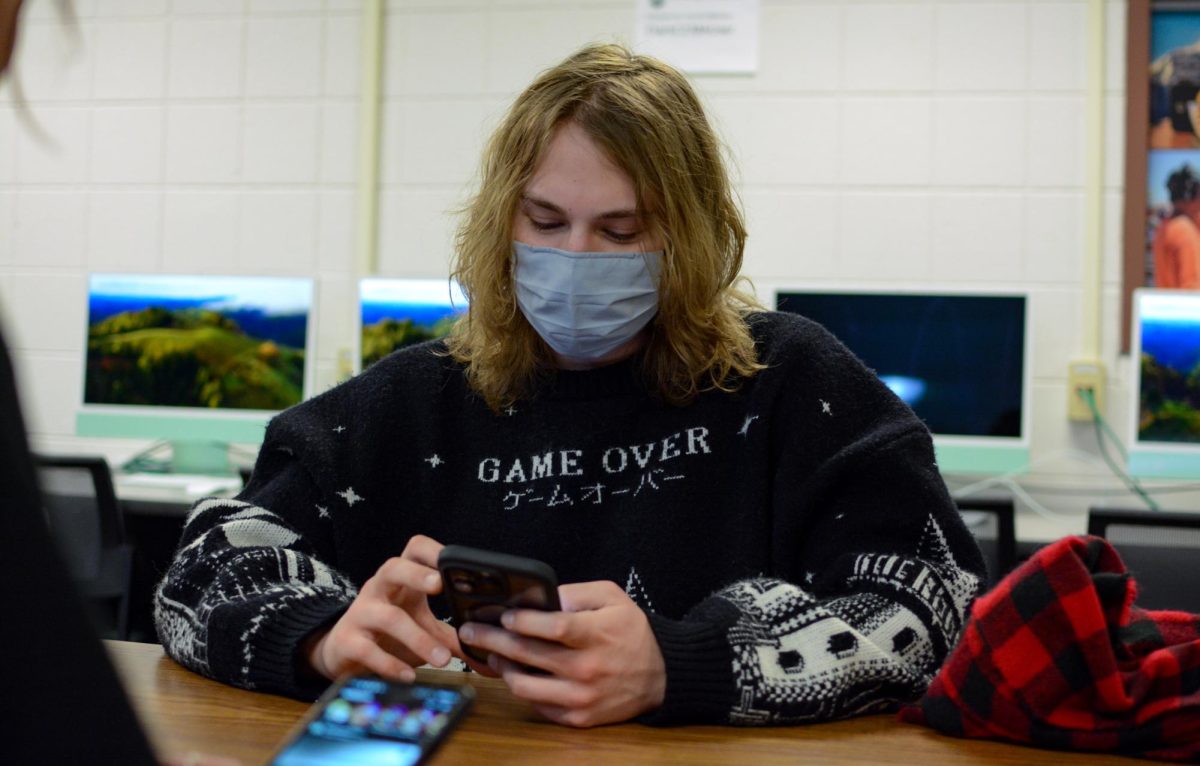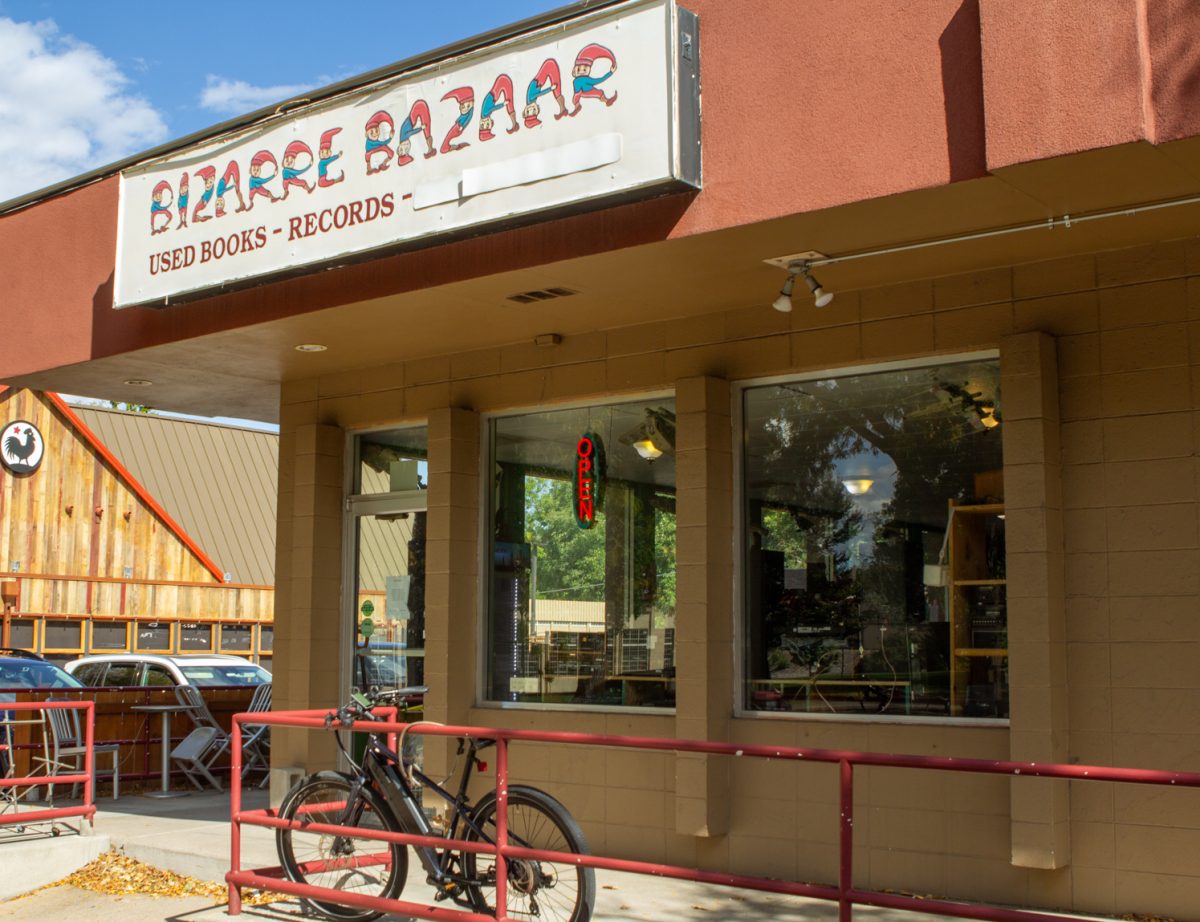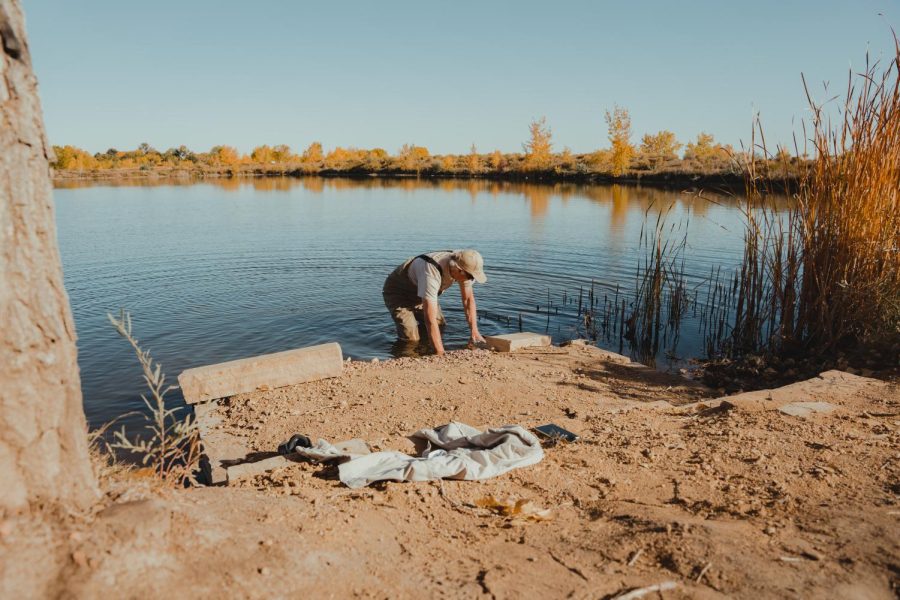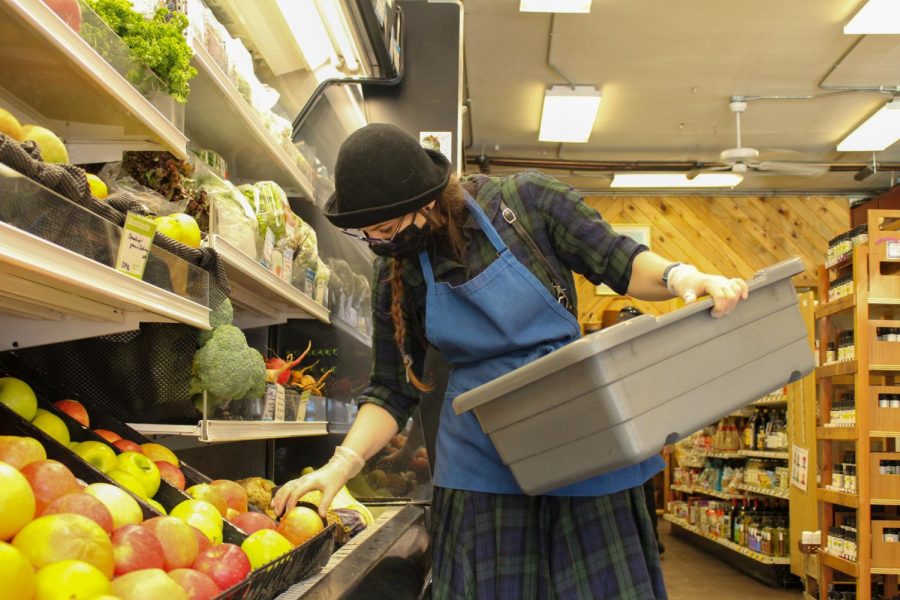This past year has been challenging for campus initiatives at Colorado State University. From diverting waste to feeding students, many programs were forced to restructure and refocus their strategies as the pandemic upended campus life.
For instance, the Zero Waste Team had difficulties maintaining their usual venues of waste management. Usually, club members attend football games and other various campus events to host waste diversion and up-cycling practices. In a normal year, they also work closely with dorms to educate and divert waste. However, the pandemic halted many of their normal procedures.
“We’ve had to focus more of our efforts on education because we don’t have the opportunity to actually divert waste as much,” says Fran Letts, president of the Zero Waste Team at CSU. “We haven’t had those interactions with students. Usually we help out at orientation, Ram Welcome, and different fairs. We usually get that interaction before they even start school and then we create that culture around waste prevention. There’s a gap right now between the knowledge”
Even outreach and education initiatives have proven to be difficult with the lack of in-person gatherings.
“We like to broadcast our work to the greater community,” says Sara Van Hatten, director of the Student Sustainability Center. “If we went on a recycling tour at the Timberline Recycling Center, you’re welcome to come if you’re not a CSU student. But it’s really hard to encourage students, staff, faculty, or anybody to jump on another Zoom call at the end of the day. Ultimately, that’s really where we have fallen short. I’ve talked to other leaders on campus and it all seems to be going pretty similar in terms of turnout.”
Through restructuring, creativity has been key to finding ways to still pursue sustainability.
“Sustainability looks a lot different right now. People are afraid to drink water from fountains, so they buy lots of bottled water, or things like that,” says Mary Liang, the Assistant Director of Sustainability within Housing and Dining. “You see masks everywhere or gloves everywhere. But maybe we can find different ways and creative ways to pursue sustainability.”
Besides programs focusing on sustainability, food waste and food security initiatives also had to restructure during the pandemic. For instance, the Rams Against Hunger program, which serves as an umbrella for several smaller food-related programs, had to adapt their approach to continue helping the community.
“Sustainability looks a lot different right now. People are afraid to drink water from fountains, so they buy lots of bottled water.” -Mary Liang, Assistant Director of Sustainability for Housing and Dining Services
Some programs within Rams Against Hunger were unable to run at all, like the Ram Food Recovery program. This initiative addressed student food insecurity by letting students know of any leftover food from Housing and Dining and any events in various halls.
Initiatives like the Meal Swipes program, which offers 60 free meal swipes to eligible students, have also been hard to change to maximize benefits to the student population.
“There are a lot of students that have been on the waitlist for a long time. And now if they get the meals, they may not even be on campus,” says Michael Buttram, Rams Against Hunger Coordinator. “That has been tough because it is harder to organize now, and I want to still keep their names on the waitlist if they are not on campus.”
Since students are helped on a first-come, first-serve basis in the Meal Swipes program, students are put on the waitlist if the program cannot initially accept them. As participants rotate throughout the year, students on the waitlist typically get to participate within the academic term. However, the pandemic resulted in many students missing this opportunity.
Despite these obstacles, some programs have adapted to the pandemic for the better. The Rams Against Hunger Food Pantry, for instance, adapted to make food more accessible by increasing one day a month to three days a week.
“We used to do monthly pantries, one day a month and 900 people were showing up,” Buttram says. “But we can’t serve the whole community in two hours. And what happens if you work during those two hours? So now we are accessible to more and more people and it’s becoming an understood part of student support services. We are normalizing the conversation and we are seeing increases in numbers.”
The increased hours of the food pantry led the RamRide Food Ops to serve more of the CSU population. This program, which only started in January 2020, transferred from a service that transported people to the food pantry to a food delivery service.
“We used to do monthly pantries, one day a month and 900 people were showing up. But we can’t serve the whole community in two hours. And what happens if you work during those two hours?” -Micheal Buttram, Rams Against Hunger Coordinator
“Students are finding it a lot more accessible, especially with the pandemic,” says Jose Hernandez Albarado, the graduate assistant for RamRide. “When you think about vulnerable populations and how they can’t go out to get their groceries, this program really benefits them in giving them more accessibility to get free food. I also think this is a huge thing for folks who are low income or can’t afford it.”
The program saw a direct result from the increased accessibility. In the beginning of October 2020, the program delivered to around 20-30 homes. By November, they were helping around 40 families.
Alongside food initiatives becoming more accessible, overall momentum around the issue of food insecurity also increased.
Feeding America, who dispensed food to all pantries across the United States and to Larimer County Food Bank, started supplying CSU with more food in 2020. When the pandemic hit and restaurants closed, Feeding America redirected produce from suppliers to food banks. This not only helped to increase food options for communities, but also lessened overall waste.
“The pandemic really opened up avenues that hadn’t been there before,” Buttram says. “We were seeing a ton of new producers coming in, and I don’t think those avenues and donations are going to go away completely after the pandemic ends.”





































